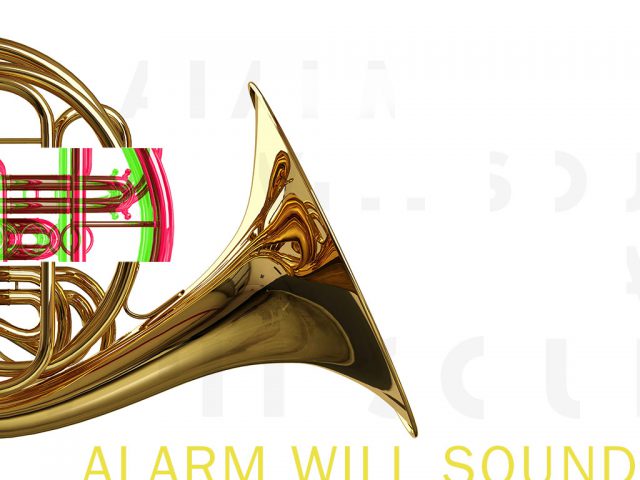
Ahead of the 2012 Mizzou New Music Summer Festival, we asked the eight resident composers about themselves and their music.
AWS: What is the first piece you wrote? Do you still own up to it?
Stephanie Berg: Technically, I wrote my first piece when I was about five years old. I definitely still own up to it—it was a cute little piece for piano, fully harmonized and everything. It ended the same way it began and was a little scattered thematically, but how much can you really expect from someone who eats their boogers?
Asha Srinivasan: My early works were written on a multi-track keyboard synthesizer and intended as choral pieces. I would own up to them but I wouldn’t want them performed because I have grown so much since then. My understanding of music and sound has changed so dramatically. I would still acknowledge those works as important stepping stones into composition, but not much more than that.
Ted Goldman: Two, a chart for my high school jazz combo. And yes, I still think it’s totally awesome!
Charlie Piper: I was writing little pieces when I was about 9 or 10. They were usually called things like Piece for my mum and were for the piano and had about three notes in them. They’re still a prominent part of my catalogue.
Brian Ciach: The first piece I wrote is a piano sonata from 1995 in D-flat major. It sounds like bad Mozart.
Patrick Harlin: I wrote a solo piano work when I was seven which my mom notated for me. I absolutely own up to it! Oddly, I find fragments of works from my early childhood in much later pieces.
AWS: What are the challenges and rewards of writing for Alarm Will Sound’s instrumentation?
Brian: Writing for Alarm Will Sound is great because it allows you to have the resources of an orchestral instrumentation with the intimacy of a chamber music group. My piece is a mini chamber concerto and makes use of both of these writing styles in addition to solo writing, which collectively as a package is unique to groups like Alarm Will Sound.
Patrick: It is exciting to work with a group that plays the most difficult repertoire and likes the challenge. I was able to see a concert put on by Alarm Will Sound earlier this year. Afterwards I chatted with a number of the players. When asking them about the Mizzou festival, all of the members said “write something challenging.” I always try and factor the level of the players when writing a piece, so it is nice to be in a position where a difficulty limit is removed. Alarm Will Sound is a unique instrumentation in that you have all the choirs of instruments, but the one-player-per-part instrumentation encourages more soloistic/virtuosic writing. You can get away with more intricate ensemble work, and more demanding individual parts than in orchestral writing. In addition to writing the piece I want to write, as a composer I try to give the players interesting parts to perform.
Stelios Dimou: The biggest challenge for me was the enormous sound mass of a big ensemble, and the compositional decisions that I had to make in advance in order to use the ensemble with the most effective way. Personally speaking, this is the second time that I am composing for a big instrumental ensemble of this nature, and this fact reinforced my technical understanding of composing for such instrumentation. Another challenge was the balance of the sound regarding the single string section against the rest ensemble. I think that the sounding nature of this ensemble makes the strings weaker because the five woodwinds and the brass can create an enormous sounding force that probably covers the strings. That affected most of my compositional decisions and I tried to use the strings in a way in which they have a unified and strong sound identity without being covered by the rest ensemble.
David Crowell: In a way, the biggest challenge is that I know a lot of people in the ensemble, and so therefore wanted to write something they would enjoy playing. And the reward for writing a piece is always the opportunity to hear it performed.
Stephanie: I think anyone who writes for chamber orchestra has to decide if they are writing for a large chamber ensemble or a small orchestra. In my piece I attempted to balance these two aspects, juxtaposing intimate chamber sections against bombastic tuttis. There is no shortage of coloristic opportunities with the range of instruments represented, but a challenge I faced was making sure the sounds in my head were not, in fact, for a full-sized orchestra (and if they were, how could I achieve the same effect with less).
Asha: The main challenge for me is thinking about the chamber orchestra sound. I am used to thinking about smaller chamber ensembles (4-5 players) or large orchestras. It is rare to work with a chamber orchestra where you have one player per instrument. The reward is that I know the playing and interpreting of my work will be superlative so that even simple ideas will sound masterful.
AWS: How did knowing the piece is to be performed by Alarm Will Sound influence the writing?
Ted: I assumed I’d write something tricky, but I ended up with one of my simplest pieces!
Stephanie: Honestly, at first it was kind of intimidating—this is a group of amazing musicians who make it their job playing new music. I really wanted to write something that would take advantage of the group’s virtuosity, that was somehow better than anything I had ever written before, and I psyched myself out a little. What do I really have to contribute to new music that hasn’t been written before, probably better, by someone else? But really, isn’t that what all composers face? So I said “Screw it,” and I just wrote a piece that I knew would work. And I’m really happy with the result—it encapsulates the vivacious energy of AWS’s members with plenty of solo opportunities to showcase various instruments. I’m hoping it’s a piece that both performers and audience members can really sink their teeth into.
David: I knew there was a possibility for some improvisation, which I included in the piece. There’s also a pretty raucous element to the music, full on drums and electric bass. And in the middle of the piece there’s a complex section in rhythmic unison that I figured Alarm Will Sound would be open to tackling, based on some of the recordings on a/rhythmia.
Charlie: It certainly gave me the freedom to try out some difficult things, but I also tried not to be swayed by their virtuosity and write something just flashy.
Stelios: I knew in advance that I had the chance to collaborate with a professional ensemble who are experts in contemporary music. I worked on many subtle parameters in this piece, and this happened because I knew that I would collaborate with an ensemble of this artistic and technical nature. Moreover, the idea of an organized festival forced me to experiment and work on technical issues that I will be able to discuss and work on with the ensemble in a series of live rehearsals.
Patrick: I knew before drafting any ideas for my piece that I wanted to utilize the drumset, as well as take advantage of the high energy of the group. I also wanted an electronically influenced piece; these considerations were directly influenced by the group and the repertoire they perform.
AWS: What are you reading or watching these days?
Charlie: I’ve been watching and loving Breaking Bad and I’m currently reading a Martin Amis book about sex in the 70s.
Brian: My piece is about a medical slide of Albert Einstein’s brain on display in a medical oddities museum in my hometown of Philadelphia. I’ve been reading all about Einstein from the start of the project and am currently finishing his biography, written by Walter Isaacson. I’m very happy that this project has put me in touch with such a humble and inspiring human being.
David: I’m reading Songlines by Bruce Chatwin, in preparation for my first trip to Australia this summer.
Ted: I’ve been watching slow-motion YouTube videos of olympic ping-pong.
Stephanie: I love me some 30 Rock and Futurama.
Patrick: I have been reading Foucault’s Pendulum by Umberto Eco, and watching Breaking Bad and Downton Abbey
AWS: What’s your favorite “bad” song?
Patrick: Most anything by The Black Eyed Peas.
Stephanie: Well, I like Lady Gaga. Whether or not that is “bad” is up for debate.
David: If the song is actually bad, I probably won’t like it. If the question is what’s your favorite overproduced pop song from the 80s then I’d have to say Africa by Toto.
AWS: Choose one: Mad Men or Game of Thrones?
David: Mad Men.
Patrick: Game of Thrones.
Stephanie: Game of Thrones—my friends tell me I would really like it, if I ever emerge from under my rock and watch something new.
Asha: Mad Men.
Charlie: Both.
Ted: Star Trek—all the other options are so bleak!

